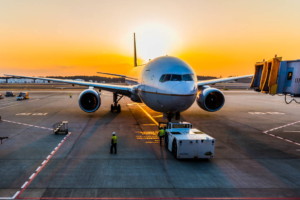Don’t panic: Opportunity, ingenuity will give us climate-friendly travel, tourism

“Tourism is itself one of the wonders of the world,” United Nations’ big boss António Guterres said as he extolled the virtues of our industry. That’s the good news.
However, as the UN World Tourism Organization (UNWTO) warned that between 100 million and 120 million direct tourism jobs are at risk right now, the UN secretary-general underscored “equity” as a major priority area for our travel & tourism industry as it rebuilds for the future.
Your correspondent hopes that Mr Guterres means equal rights and continued progress towards equal opportunity. This sensible, mainstream, and centrist position cannot be assumed.
Many influential or at least disproportionately-loud voices seem to be calling for the more utopian equality of outcome.
Equality of outcome is not the same thing at all. Very few people support such a goal once they fully comprehend what the necessary means to those ends are. We’ve seen that movie before. We know it doesn’t end well. (Spoiler: There is no outcome more “equitable” than everyone losing their jobs.)
The UN chief also cited climate-friendliness as a priority for tourism’s recovery.
To move ourselves and our stuff around without releasing greenhouse gases, software billionaire Bill Gates reckons we can “use clean electricity to run all the vehicles we can, and get cheap alternative fuels for everything else” i.e. passenger planes, cargo ships, road trains … He noted that biofuels and electrofuels both “need a lot more innovation before they become a realistic, cost-effective option”.
The good news here is that we have at hand new technologies for a more climate-friendly future for travel and transport.
As “Good news in tourism” has covered for months, there are a lot of real and rational things happening to decarbonise travel, including the strong advocacy and supportive programs of “GT” Partner SUNx — Strong Universal Network.
Your correspondent’s personal view is that even in the current circumstances there is every reason to encourage and promote market-based incentives and opportunities to continue innovating toward net-zero travel.
Enhancing incentives and opportunities — and levelling the playing field to allow more access to them — through well-conceived public programs and policies may be useful too, but only if budgets and bandwidth allow.
Unfortunately many treasuries are empty. And there are clearly more pressing political priorities facing governments, including those 100+ million travel & tourism jobs … oh …
Fine. We should never rely on governments to solve our problems anyway; especially all our problems all at once.
And we should watch closely as politicians pick out their favourite (nascent or extant) technologies for special subsidy or support. Such political intervention is an opportunity for the sort of corruption and/or incompetence implicated in decades of dodgy energy policy. (Do you honestly think your side of establishment politics is any better?)
Relax. When it comes to climate change and the need for net-zero travel, don’t panic. Don’t be alarmist. Don’t run out onto the streets and burn everything down like an undergraduate with all the righteous answers to all the wrong questions.
Where there is demand for affordable net-zero travel — and there is plenty — someone will fill it. The incentives to do so are obvious (and diverse).
Simply give people the time and space and encouragement to work on solutions.
Give them an equitable opportunity.
Human ingenuity will prevail.
Now, about those jobs …
Agree? Disagree? Share your reasons in the comments below. Or write a “GT” Insight. The “Good Tourism” Blog welcomes diversity of opinion about our travel & tourism industry because travel & tourism is everyone’s business.
About the author

David Gillbanks is the publisher of The “Good Tourism” Blog (this website) and a freelance writer and communications consultant available for hire at www.NewMedia.pro (his LinkedIn profile; feel free to connect). David’s background is in writing, publishing, and corporate communications in the lifestyle, property, travel & tourism, not-for-profit, and economic development sectors.





